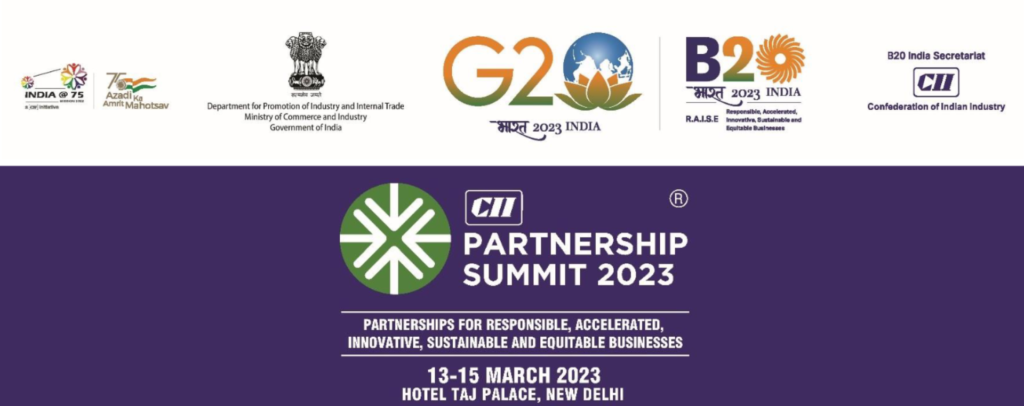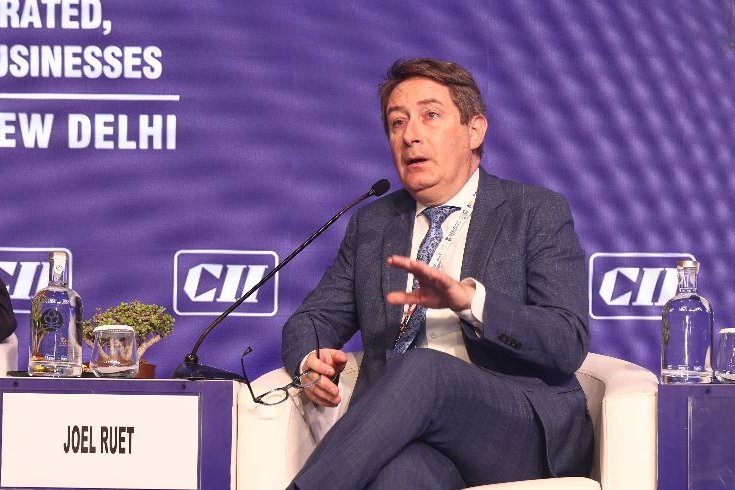On the last day of this year’s CII Partnership Summit 2023 in New Delhi, India, Joel Ruet, President, The Bridge Tank, took part in a session on ‘Building Resource Efficient & Resilient Green Supply Chains.’
The 28th edition of the summit organised by the Confederation of Indian Industry (CII) from 13-15 March 2023 dedicated to questions of global trade, economy, competitiveness, sustainability and technology was convened with the theme “Partnerships for Responsible, Accelerated, Innovative, Sustainable, and Equitable Businesses.” This comes as the CII is serving as secretariat of the B20 (Business 20) during India’s 2023 G20 presidency. The Bridge Tank, represented by its president Joel Ruet, was invited by the CII to join in the high level discussions in New Delhi.
On March 15th, Joel Ruet sat down with Dr Martin Keller, Lab Director & Alliance President, National Renewable Energy Laboratory (NREL), and Mr Ashwani Kumar, CEO, Suzlon Group, in a panel discussion moderated by Mr Christian Cahn von Seelen, Member of the Board and Executive Director, Volkswagen Group Sales India on ‘Building Resource Efficient & Resilient Green Supply Chains.’
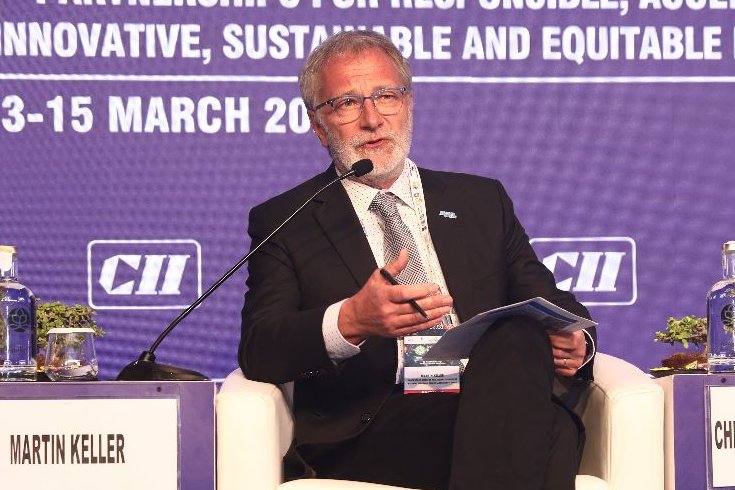
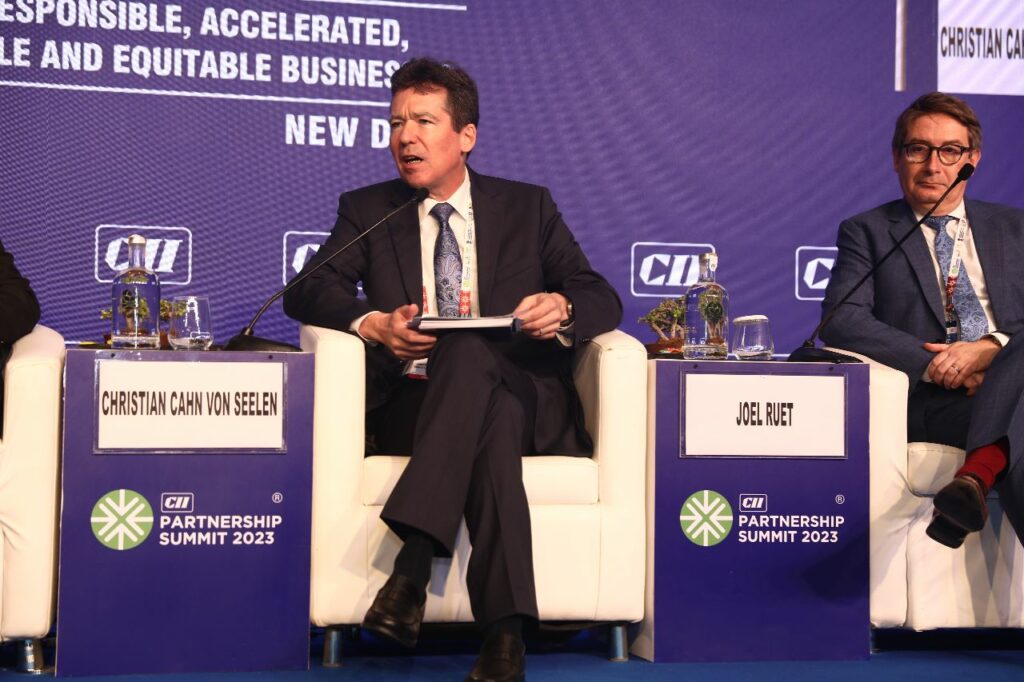
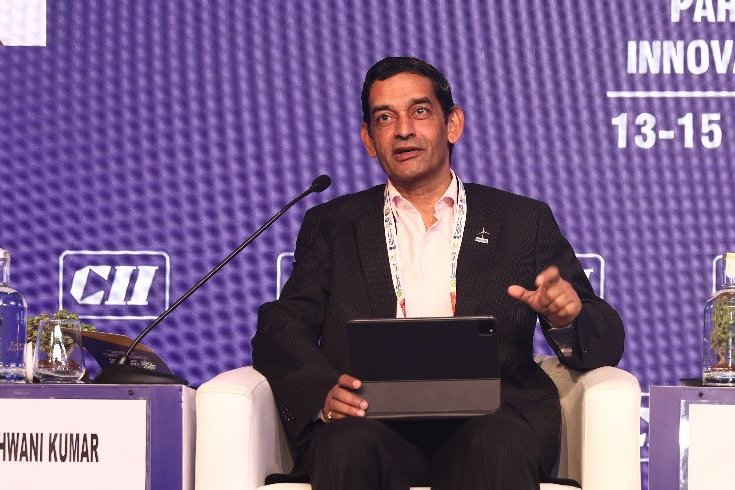
During the discussions, Dr Joel Ruet noted that supply chains in a “stabilized world” needed optimization. However, in current times of uncertainty and instability, there is a real need to diversify supply chains and bring in options across countries, industries, and technologies.
This idea was echoed by Dr Martin Keller, who emphasized the need for global synergies on diversifying supply chains with regard to raw material availability, manufacturing capabilities, adoption of clean energy, circular economy & green skilling.
Mr Cahn von Seelen and Mr Kumar highlighted the role of green energy in these resilient supply chains. Mr Cahn von Seelen stressed how important it now was for the world to focus on sustainable energy supply chains to replace petrol. The example Europe has set by entirely changing its energy mix in the span of one year, following Russia’s attack on Ukraine, has shown that drastic changes are possible.
Mr Kumar went a step further, adding that we needed to look not only at how much of our energy consumption was green but how green the generated kilowatt-hour actually was. Such a process must start at R&D stage, enabling greater efficiency and providing a key contribution to green supply chains.
